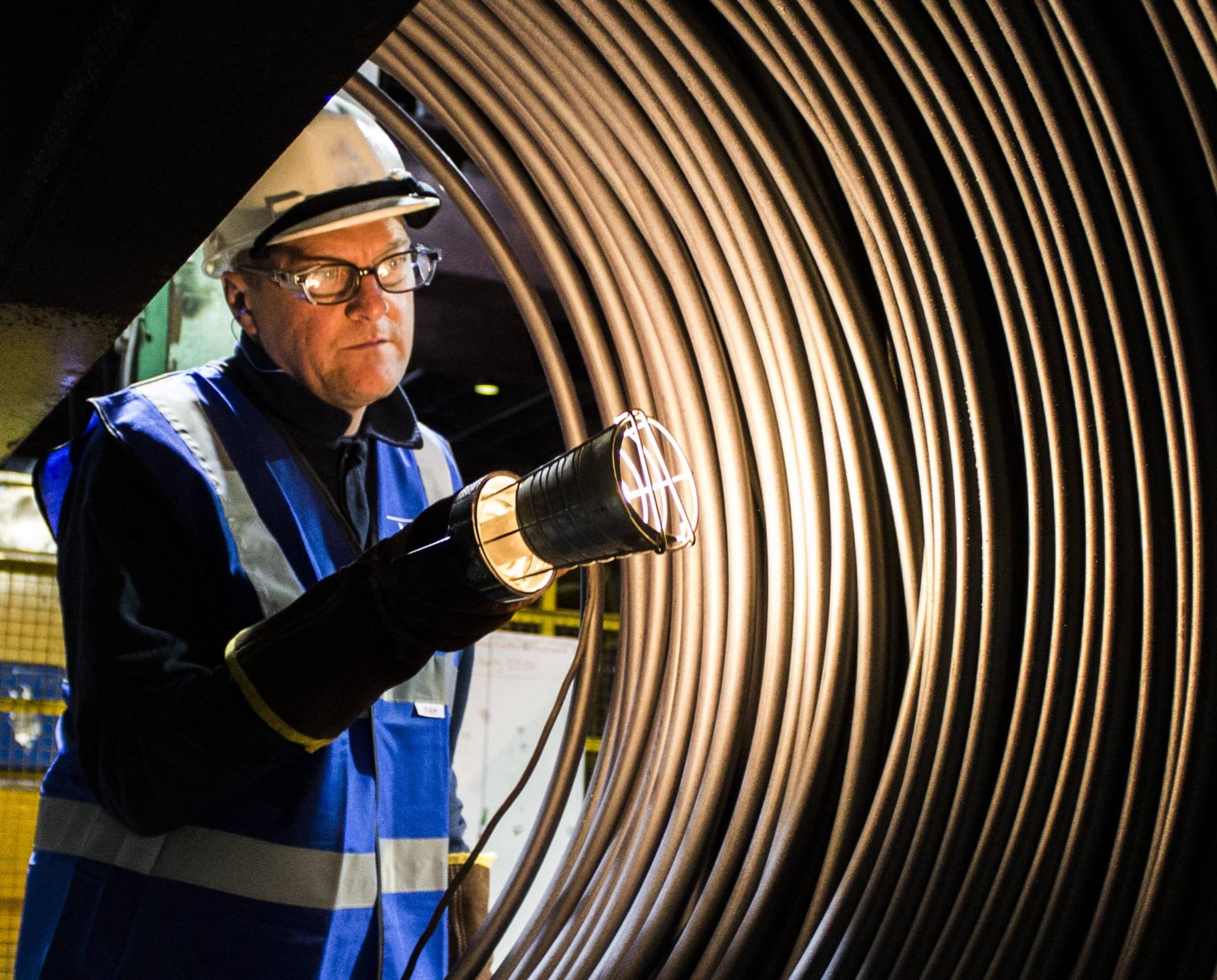UK Steel: Without robust Carbon Border, steel industry will be at risk

18 April 2024
UK Steel has been a thought leader on the implementation of a UK Carbon Border Adjustment Mechanism (UK CBAM) since recommending its implementation in 2021. With today’s report on key design principles, UK Steel is firing the starting gun on the UK CBAM and sets out how the Government can ensure robust carbon leakage protection and create a level playing field on carbon costs.
The UK Government has confirmed that it will introduce a UK carbon border by 2027, which will be vital to ensuring a level playing field on carbon costs for the steel industry. However, if the UK CBAM policy is not designed correctly, we will see steel flooding into the UK that didn't face a carbon price and therefore undercuts our domestic market with high-emission steel, making a mockery of the Government's Net Zero ambition.
In its new report, UK Steel sets out twelve crucial design principles for guaranteeing a robust policy with minimal risk of circumvention, strong carbon leakage protection, and simplicity of administration for governments and industry alike. A key recommendation includes bringing the UK CBAM forward to 2026, in line with the EU, to minimise the risk of trade barriers and trade diversion.
UK Steel Director General, Gareth Stace, said:
“Over 90% of global steel production faces no carbon cost, so it is crucial that a new UK carbon border creates a level playing field on carbon pricing. This will ensure that imported steel faces similar levels of carbon costs as domestic steel producers.
“The UK CBAM must be designed to be robust and impenetrable. Otherwise, there is a substantial risk of significant damage to the UK steel industry at the time of once-in-a-lifetime investment in state-of-the-art, modern Net Zero steel production.
“In our new report, we put forward twelve new recommendations to get the implementation of the CBAM right. It provides a stake in the ground for designing a UK CBAM to work for industry, Government, and consumers alike while providing necessary carbon leakage protection and enabling free trade. We look forward to working with the Government to ensure the UK CBAM works for industry and provides shielding against high-emission imported steel, enabling a fair, competitive environment.”
Contact details
Frank Aaskov, Energy and Climate Change Policy Manager, UK Steel
07872 190965 | faaskov@makeuk.org
About UK Steel: UK Steel is the trade association for the UK steel industry. It represents all the country’s steelmakers and most downstream steel processors.
About Carbon Border Adjustment Mechanisms (CBAMs)
- A Carbon Border Adjustment Mechanism (CBAM) creates a level playing field by applying carbon prices at the border that are equivalent to those faced by domestic producers. The European Union (EU) is introducing an EU CBAM.
- European and UK steelmakers face higher carbon prices than any other part of the world.
- Only the UK, EU, Canada, and New Zealand apply comparable carbon pricing (£30-£70/tCO2e), responsible for 155 million tonnes of steel or 8.2% of global steel production in 2022.
- Japan and South Korea apply carbon pricing of around £10/tCO2e and produce 155 million tonnes of steel or 8.2% of global steel production in 2022.
- The rest of the world either applies carbon pricing of less than £3/tCO2 or no carbon pricing at all.
- This means that 91.8% of global steel production does not face carbon pricing comparable to the UK, if at all.
- CBAM aims to prevent carbon leakage, where higher national carbon prices increase domestic production costs, leading to high-emission, cheap, imported steel outcompeting and replacing domestic steel supply.
- A CBAM policy will support the decarbonisation of steel production, allowing steelmakers to produce low-emission steel (potentially with higher production costs) without being outcompeted by high-emission, lower-cost, imported steel.
Safeguards:
- UK steel trade safeguards are currently under review for their extension beyond June 2024, to June 2026.
- Safeguards can only be in place for a maximum of eight years as per WTO rules and as they have been in place since 2018, they will have to expire by 2026.
- Read UK Steel's Safeguards fact sheet here.
EU timeline:
- The European Union is implementing a CBAM policy, initially phasing in reporting requirements from October 2023 before the CBAM compliance carbon costs apply from 2026 onwards.
- UK producers will need to comply with the EU CBAM regulation, resulting in a trade barrier to our biggest export market. Since there is a gap between UK and EU carbon pricing, steel exported to the EU would face a trade barrier.
- The EU is an important market for the UK: in 2022, the UK exported 3,399,485 tonnes of steel, of which 2,550,312 tonnes went to EU member states, constituting 75% of exports.
The UK steel sector:
- Produces 5.6Mt of crude steel a year, around 70% of the UK’s annual requirement (annual demand of 8.9Mt)
- Employs 39,800 people directly in the UK and supports a further 50,000 in supply chains
- The median steel sector salary is £39,637, 43% higher than the UK national median and 56% higher than the regional median in Wales and Yorkshire & Humberside, where its jobs are concentrated
- Directly contributes £2.9 billion to UK GDP and supports a further £3.8 billion
- Directly contributes £4 billion to the UK’s balance of trade
- 96% of steel used in construction and infrastructure in the UK is recovered and recycled to be used again and again
For further information about the steel industry, please see the press pack, Why the UK Needs a Strong Steel Sector or the 2023 UK Steel Key Statistics report.